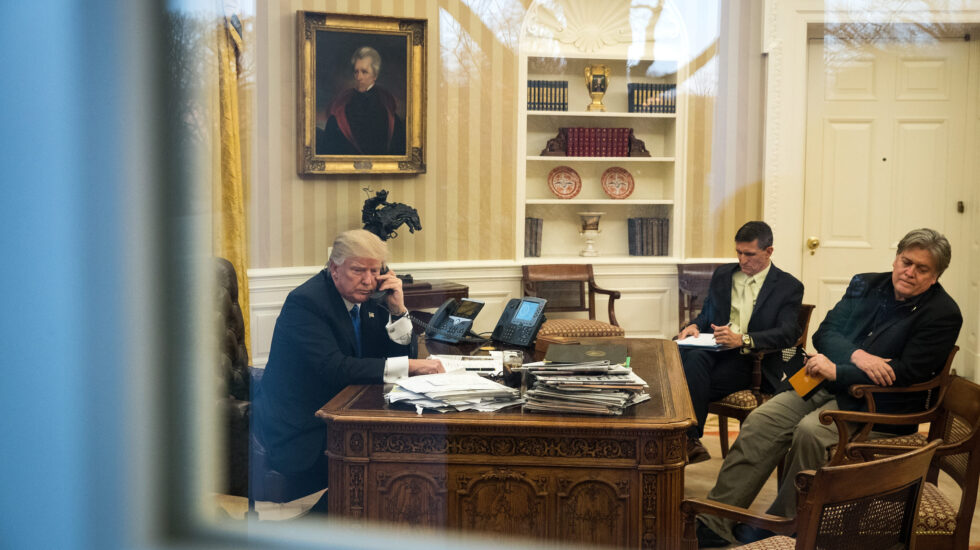The Democratic-controlled House of Representatives is working on legislation that would enact new limits on the executive branch in an effort to put guardrails on presidential powers. A bill being introduced on Tuesday is essentially aimed at Trump-proofing the Oval Office to prevent future presidents from abusing their power and preventing corruption. Democrats have made no secret of the fact that the bill, called the Protecting Our Democracy Act, is meant as a rebuke of the countless ways former president Donald Trump trampled norms over the course of his presidency.
It’s considered the most substantial overhaul of checks on the executive branch since the mid-1970s, when Congress took action following the Watergate scandal. The proposed changes would make it harder for presidents to take a number of actions, including to offer or bestow pardons in situations that raise suspicion of corruption, refuse to respond to oversight subpoenas, spend or secretly freeze funds contrary to congressional appropriations, and fire inspectors general or retaliate against whistle-blowers. it would give more strength to enforcement of the Hatch Act, which Trump administration officials essentially ignored during his presidency, as well as forbid presidents from taking emoluments. Democrats have reportedly spent months negotiating with the White House over elements that Biden Administration officials were concerned would intrude on traditional executive branch prerogatives.
While curtailing presidential power in ways designed to limit corruption and conflicts of interest would seem to be something that would inspire bipartisan support, the fact that the bill is so clearly designed as an answer to Trump’s questionable behavior may hurt its chances of gaining Republican support in the Senate, where at least 10 would need to vote for the bill to get it passed.
Some parts of the bill have previously had support from Republicans, especially actions like limiting a president’s ability to declare national emergencies and spending money without first getting congressional approval. But some parts are clearly responses to specific actions taken by Trump, including a proposal that addresses the obstruction of the traditional transition of power the Trump White House engaged in as he contested the 2020 election results.
From the Times:
Another proposal would address a problem that arose last November, when a Trump appointee running the General Services Administration refused to formally “ascertain” that Mr. Biden was the president-elect. That failure to take a previously routine step prevented Mr. Biden’s transition staff from receiving briefings from agencies his new administration was about to take over, obstructing an orderly transition of power.
To prevent any recurrence, the bill says that if the head of the General Services Administration makes no decision by five days after the election, both campaigns can start transitions.



